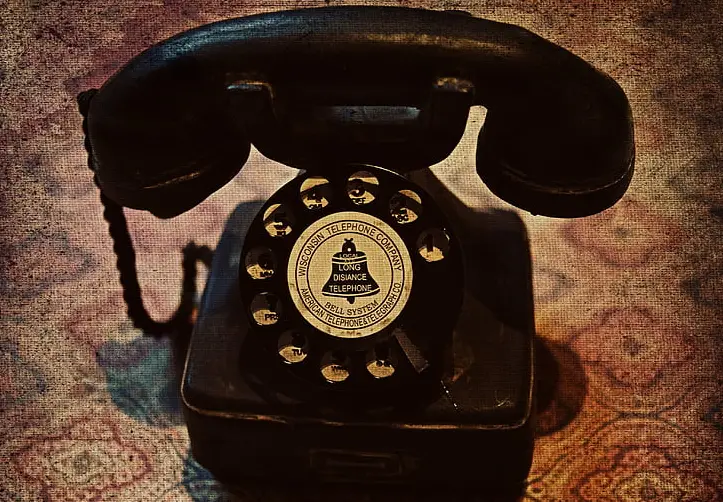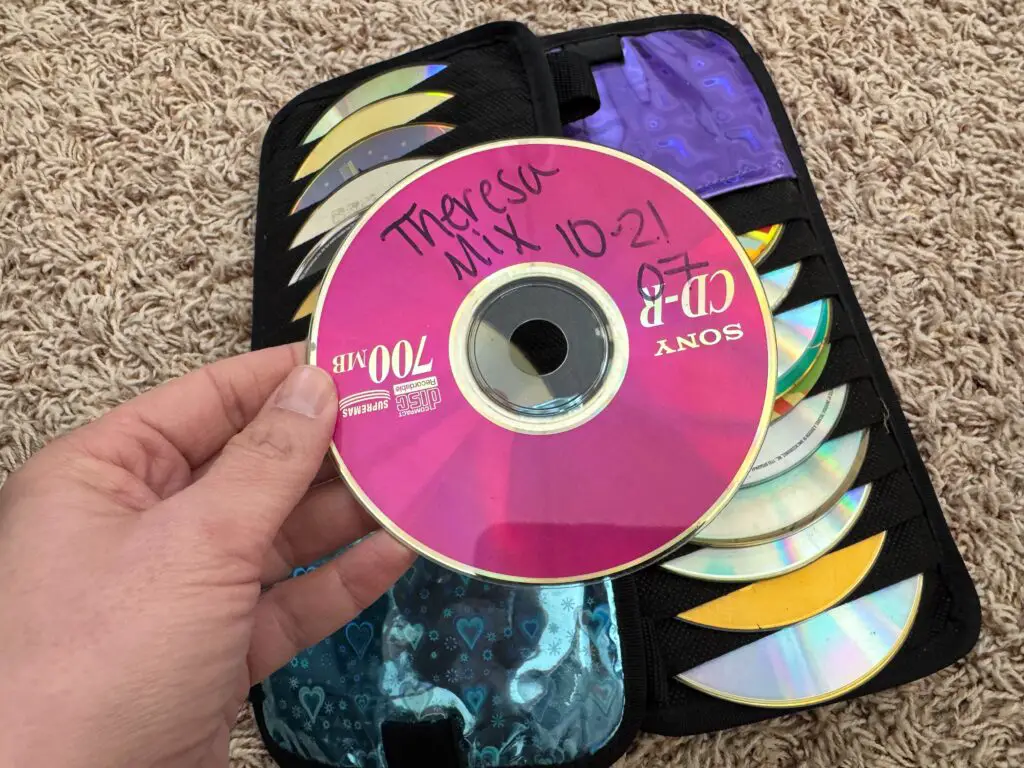1. Memorizing Phone Numbers

Back in the day, people had entire phone books stored in their heads. If you wanted to call a friend, you had to actually remember their number or jot it down in a little address book. There was a real sense of accomplishment in being able to rattle off a dozen numbers at a moment’s notice. Parents would test kids on family members’ numbers in case of emergencies, and having one memorized made you feel responsible. If you forgot someone’s number, well, tough luck—you’d have to look it up in a thick, printed phone book explains MSN.
Today, most people barely remember their own number, let alone anyone else’s. With smartphones storing every contact automatically, there’s no real reason to commit numbers to memory. If someone under 30 is asked to recite a phone number, they’ll probably just stare blankly. But older generations still take pride in the fact that they can recall an old friend’s number from 40 years ago adds VICE.
2. Perfecting Cursive Handwriting

For a long time, having neat, flowing cursive handwriting was a point of pride. Schools taught students how to loop their letters just right, and people spent time practicing their signatures until they looked elegant. A good signature was seen as a mark of professionalism, and handwritten letters were treasured. If your cursive was particularly beautiful, people would actually compliment you on it shares FOX 17.
Now, many younger people barely use cursive at all, and some schools don’t even teach it anymore. Everything is typed, texted, or voice-messaged, so there’s little need for fancy penmanship. While some still appreciate a well-crafted signature, most just scribble something illegible when signing documents. To older generations, losing cursive feels like losing an art form.
3. Knowing How to Read a Paper Map

Before GPS, being able to navigate using a paper map was a skill people were proud of. You had to figure out the route, follow the roads, and adjust on the fly if you missed a turn. There was an art to folding the map back up correctly, and if you could do it without frustration, you were practically a genius. Road trips often involved pulling over to double-check the map, and passengers were expected to be decent co-navigators adds Popular Science.
Now, most younger people rely entirely on their phones for directions. If GPS goes down, many wouldn’t know where to begin with a paper map. The idea of stopping to read a giant, printed roadmap feels unnecessary and outdated. But for those who grew up using them, there’s still a sense of pride in being able to get from point A to point B without a digital crutch.
4. Fixing Things Instead of Replacing Them

There was a time when people took great pride in repairing what they had instead of tossing it out. If a toaster broke, you’d open it up and see what was wrong rather than immediately buying a new one. Sewing up holes in clothes, patching up furniture, and fixing appliances were normal parts of life. It was a sign of resourcefulness and skill to keep things working longer.
Now, most younger folks are used to replacing things the second they stop working. Electronics are harder to fix, clothes are cheaper to replace, and repair skills aren’t as necessary. While some enjoy DIY projects, most people don’t see the point in fixing something when they can just order a new one with a click. But older generations still feel a sense of satisfaction in bringing something back to life with their own two hands.
5. Balancing a Checkbook

Keeping track of your finances used to mean sitting down with a pen, a ledger, and a stack of bank statements. People meticulously recorded every deposit, withdrawal, and expense, making sure the numbers matched perfectly. If you were off by even a penny, you’d spend time hunting down the mistake. A well-balanced checkbook was a sign of financial responsibility, and parents made sure their kids learned how to do it.
Nowadays, most people just glance at their banking app to see how much money they have. Automatic payments and digital tracking have made checkbooks nearly obsolete. The idea of spending time manually adding up expenses seems unnecessary. But older generations still take pride in knowing exactly where every cent goes.
6. Memorizing TV Schedules

Before streaming, knowing when your favorite shows aired was an essential skill. If you wanted to catch the latest episode, you had to remember the time and channel. TV guides were studied carefully, and missing an episode often meant waiting for a rerun. People planned their evenings around their favorite programs, and being able to rattle off an entire week’s schedule was impressive.
Now, everything is on demand, and there’s no need to memorize schedules. Younger people just press play whenever they want, never worrying about missing a show. The idea of structuring your night around a TV show seems strange to them. But those who grew up in the era of scheduled programming still remember the thrill of catching a show right when it aired.
7. Burning the Perfect Mix CD

Crafting a mix CD was an art form, requiring the perfect selection of songs and just the right order. People spent hours making sure each track flowed seamlessly into the next. A well-made mix was a personal gift, carefully tailored to the recipient’s tastes. It was a way to express emotions, whether it was for a crush, a friend, or just for yourself.
Today, making a playlist is as easy as clicking a few buttons. While playlists are still meaningful, they don’t carry the same effort or personal touch. Younger people may never know the struggle of fitting songs onto a 74-minute CD or the frustration of a scratched disc skipping in the middle of a song. But for those who made mix CDs, there’s still pride in having mastered the perfect tracklist.
8. Using Proper Grammar in Text Messages

Texting used to be more like writing a letter—full sentences, punctuation, and correct spelling were expected. People prided themselves on typing out messages clearly and thoughtfully. Using shorthand like “u” instead of “you” was seen as lazy, and autocorrect wasn’t as advanced. A well-written text showed that you took communication seriously.
Now, grammar in texting is much more relaxed. Younger generations use abbreviations, emojis, and shorthand without a second thought. Messages are often sent in fragments, with little concern for punctuation. But older texters still take pride in writing complete, polished messages, even if they seem overly formal to younger people.
9. Knowing Phone Etiquette

There was a time when answering the phone required politeness and proper etiquette. People learned how to introduce themselves, speak clearly, and leave detailed voicemails. Calling someone was a big deal, and you didn’t just hang up without saying goodbye. If you were a kid, you were taught exactly how to answer the house phone when it rang.
Now, phone calls are rare, and many younger people prefer texting. Answering with “Hello, this is [name]” feels unnecessary, and voicemails are often ignored. The rules of phone etiquette have changed, but older generations still take pride in handling a call the “right” way.
10. Remembering Birthdays Without a Reminder

Before social media, people actually had to remember birthdays without a notification. Writing them down in a calendar or keeping them in your head was normal. If you forgot someone’s birthday, you’d feel terrible because there was no excuse. A heartfelt, handwritten birthday card meant a lot.
Now, Facebook and phone reminders do the remembering for us. If a notification doesn’t pop up, younger people might not even realize they forgot a birthday. While digital wishes are nice, they don’t feel as personal. But older folks still take pride in remembering birthdays the old-fashioned way.
11. Developing Film Photos

Taking pictures used to be a much more thoughtful process. You had a limited number of shots on a roll of film, so every picture had to count. After finishing a roll, you had to drop it off at a store and wait days to see if your pictures turned out. There was a sense of excitement in picking up your prints, flipping through them, and maybe even discovering an accidental gem. People took pride in capturing good photos without the ability to preview or edit them.
Today, digital photography allows for unlimited shots and instant results. Younger generations can snap a hundred pictures, delete the bad ones, and apply filters in seconds. The idea of waiting days for photos, only to find out half of them were blurry, seems frustrating and unnecessary. But for those who grew up with film, there’s still something special about a perfectly captured, unedited shot.
12. Cooking Without Measuring Everything

Many older generations take pride in their ability to cook by instinct rather than by following a recipe to the letter. They add a “pinch of this” and a “dash of that,” tasting as they go and adjusting along the way. Recipes were often passed down verbally, with instructions like “until it looks right” rather than exact measurements. Cooking was more about experience and intuition than precision.
Younger people often rely heavily on step-by-step recipes, measuring every ingredient precisely. With so many online recipes available, there’s no need to memorize anything. The idea of just eyeballing ingredients and hoping for the best can feel risky to them. But for those who’ve spent years perfecting their favorite dishes, there’s pride in knowing they can make a great meal without looking at a recipe.
13. Collecting Encyclopedias

Having a full set of encyclopedias on your bookshelf was once a status symbol. It showed that a household valued knowledge and learning, and it was a go-to resource for school projects and general curiosity. Parents would proudly buy entire encyclopedia collections for their kids, believing it would help with their education. People took pride in having easy access to a world of knowledge right at their fingertips—well, as long as the information wasn’t outdated.
Now, younger generations have instant access to vast amounts of information online. The idea of flipping through heavy books to find a single fact seems tedious and unnecessary. Encyclopedias are more of a nostalgic decoration than a useful tool. But for those who grew up relying on them, there’s still something satisfying about having a physical source of knowledge in the home.
14. Writing in Journals or Diaries

Keeping a handwritten journal used to be a common habit, and people took pride in documenting their lives. Writing down thoughts, events, and personal reflections was a way to process emotions and preserve memories. Many people had beautifully bound journals filled with years of entries. It was considered a deeply personal and meaningful practice, and finding an old diary full of past experiences could be a treasured discovery.
Today, digital notes, social media, and voice memos have largely replaced traditional journaling. Younger generations often share their thoughts online rather than in a private notebook. While some still keep journals, the act of physically writing down daily experiences is much less common. But for those who grew up with pen and paper, there’s still a special kind of pride in having a written record of their life.
